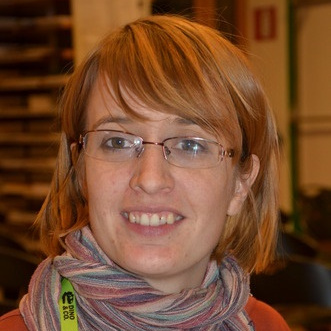
Demetra Rakosy is an ecologist and works as a postdoc at the Helmholtz Centre for Environmental Research (UFZ) and the German Centre for Integrative Biodiversity Research (iDiv) in Leipzig.
She completed a Master's degree at the "Babeş-Bolyai" University in Cluj (Romania) in Systemic Ecology and Environmental Protection and a Master's degree at the University Vienna (Austria) in Evolutionary Biology. She also wrote her dissertation at the University of Vienna.
As part of her thesis, she focused on pollination strategies of deceptive orchid species. These attract pollinators without offering any kind of reward. Instead, they imitate either other rewarding flowering plants or female insects. She also researched how pollinator-mediated selection shaped the evolution of different flower traits such as scent, color and shape in deceptive orchids. She is also currently collaborating on a few projects which investigate the evolution of floral traits in other deceptive orchids.
In general, Demetra Rakosy's research focuses on plant-pollinator networks. That is, she is dedicated to the diverse and complex relationships between plants and their pollinators - such as bees, butterflies, and the generally underappreciated flies. Her study areas are in previously under-researched parts of Europe, primarily Romania, Poland and the Czech Republic. These areas still harbor some of the most species-rich natural and semi-natural habitats in Europe. However, they are increasingly threatened by land-use intensification. Her research seeks to understand how plant-pollinator networks are established in natural habitats and how they change under the influence of anthropogenic factors. What are the consequences when relationships between plants and their pollinators are transformed? It is her hope that the answers to these questions will help maintain relationships between plants and their pollinators and restore lost relationships.